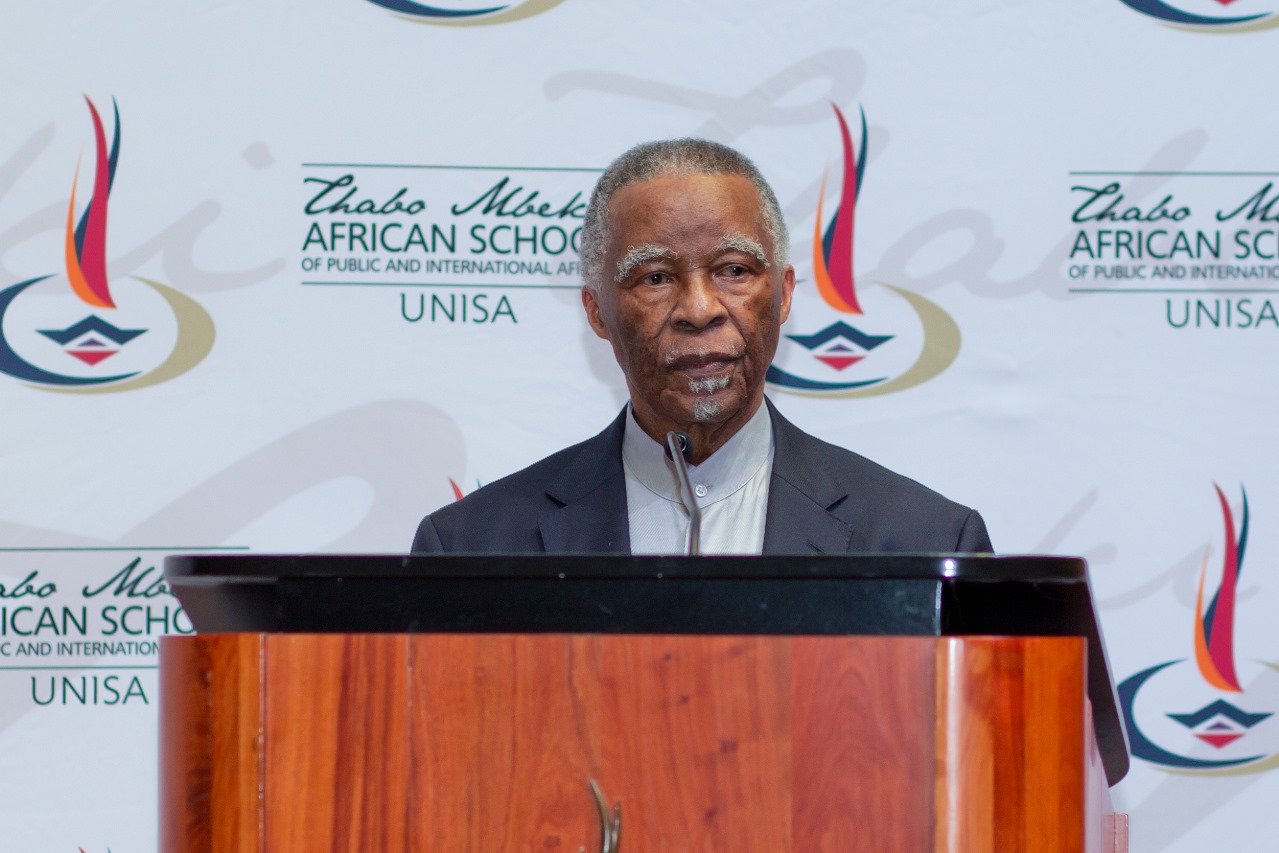By Toyin Falola
Are you disappointed with the ANC today? If so, let me explain the roots of the crisis in yesterday’s ideology on human values as against today’s ideologies on selfish elite interest. Don’t confuse yesterday’s ANC with today’s! To understand yesterday’s values, you must read the Mbeki letters and papers.
First, you need to understand the philosophy of politics and people. Orientations about progress and the roles individuals play in enhancing it have always differed based on the underlying philosophy of a people. For some, progress is equal to the radical elevation of their infrastructural system, leading to cutting-edge buildings and roads equipped with modern technologies. The aesthetics of this transformation often inscribe an assumption into people’s minds that such societies have the most stellar models of civilization. Those who bear this luminous identity take pride in having accomplished what seems unattainable to other groups of people, and for that reason, they assume, albeit erroneously, that they should be considered as the template for growth, progress, and development. However, not all groups view progress from this prism.
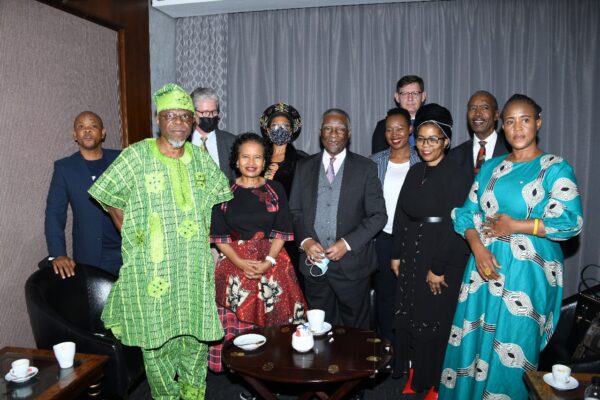
Ultimately, they view development from a unique perspective. For them, building human capacity is essential and even critical to any form of development, for any aesthetic brilliance recorded by people who have no sense of awareness and knowledge about the basic things around them could end up being destroyed by the same people because of their ignorance. Anyone familiar with African societies would quite agree that Africans belong to the latter category. Until recently, when Africans were compelled to appropriate infrastructural advancements as indices of progress and development, there was no time when they valued houses and other material possessions more than they did human beings.
The ubiquity of this ideological behaviour and perception across many African societies makes it difficult to challenge the authenticity of this claim. Particularly across the Sahara, there has always been a strong investment in human capital, which is regarded as the most valuable investment. As such, when there is an issue that threatens the existing peace of the people, Africans used their collective power and voices to address the problems and restore normalcy in their society. This approach formed the philosophical foundation of the Ubuntu paradigm. Thabo Mbeki acknowledges this, noting how its application helped South African freedom fighters to assert their claims and influence, ultimately leading to the emancipation of their people.
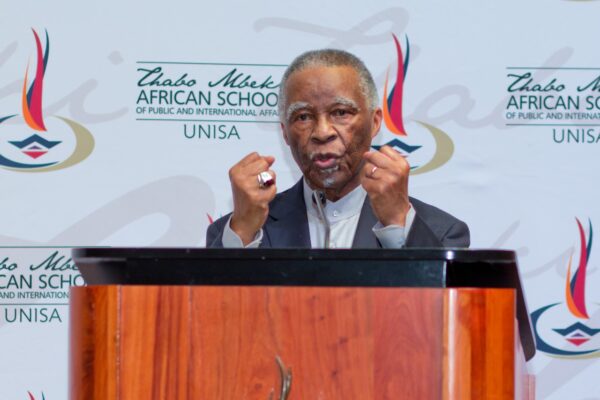
Recognizing the strength of investing in human resources enabled them to build a popular political platform where everyone saw themselves as part of their undertakings. For instance, the African National Congress (ANC) enjoyed widespread popularity among the people due to the application of the people’s philosophy and principles of progress. These principles allowed the ANC to integrate individuals with mutually exclusive mandates to form a force capable of determining the country’s affairs. By prioritizing the human family above other engagements, the party’s leaders invariably rooted their pillar deeply into the hearts of the people, securing a future for it. Once the focus shifts away from people to houses and cars, the ANC begins a process of decline.
The philosophy of prioritizing people was a foundational ideology of the ANC. This is one of my takeaways from reading Mbeki’s. They believed that without investing in the human family, no matter how vibrant or determined their efforts, and regardless of their dogged determination to free the country from tyranny, they would eventually lose out at some point, especially when the frontline liberators had consumed their energies. It is against this backdrop that many ANC leaders enjoyed the goodwill of the people and were able to establish a political party grounded in unwavering values.
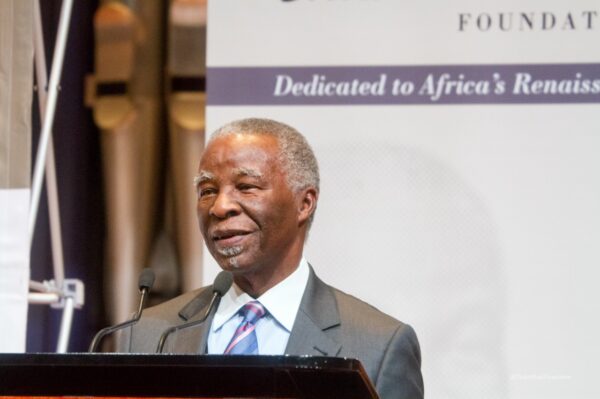
In the post-1994 democratic revolution, it became clear why the ANC garnered global attention. This period was marked by a deliberate investment in educating people about the fundamentals of life. Members were taught that they deserved a quality life and that unless they made frantic efforts to liberate themselves, the oppressors would continue to invest heavily in their miseducation, wrong reorientation, and manipulative strategies to keep them in darkness and perpetuate savage behaviour. Information such as this empowered people to resist every act of injustice and effort towards colonialism. They understood that unless they became numb to political engagements, no one could be powerful enough to enslave them, and they held this conviction tenaciously in their hearts.
It is crucial to emphasize that the party’s leaders during this period were highly accountable. Contrary to what is seen in different places today, they made sure to update their people about ongoing events, fostering transparency that shaped the people’s mindset. Regardless of age or rank, members of the ANC before and immediately after 1994 recognized the power they held within themselves and were given the recognition they deserved as humans. The accessibility of information motivated them to actively participate in the political engagements of the time, knowing it would ultimately be to their advantage.
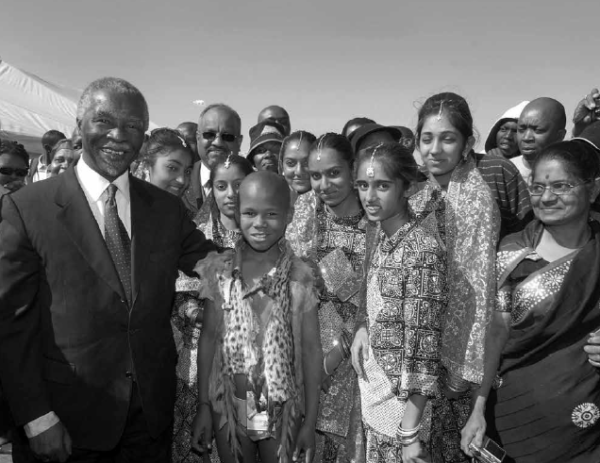
Leaders were responsible to the citizens, and this sense of duty was reciprocated where necessary. Thus, it is likely that the founders of the party built their philosophy on a foundational paradigm of people’s progress. By investing in human capital, the ANC gained loyalty, commitment to their collective aspirations, and a determination not to compromise their party’s ethical identity. It is no surprise, therefore, that the party became a force to reckon with, influencing and reshaping the future of South Africa as is seen today. Over time, however, the ANC, which had earlier enjoyed the goodwill of the people and rose to prominence through the collective voices of its members, began to experience a decline, becoming a source of concern for everyone, especially Mbeki. As an insightful thinker, Mbeki diagnosed Africa’s postcolonial problems, offering various guidance on his observations.
The saying that “good time creates weak men” resonates with the current development in many African countries, where weak men and women have ascended to positions of power. It is a bewildering irony that those who have benefited from the hard-fought legacy of freedom bestowed upon them by men and women of courage are now ideological outlaws disconnected from their people and indifferent to investing in human capital. For example, it has become common for many postcolonial African leaders to avoid accountability to their people. Except during the ritual of electioneering promises, campaigns, and political evangelism, politicians in the continent today do not see the importance of investing in their people. This is partly because the highest level of leadership has been infiltrated by self-aggrandizing people who do not understand the art and act of diplomacy and governance. Rather than viewing their positions as opportunities to serve, these opportunists are dressed in the toga of condescension, seeing others as dispensable and irrelevant.
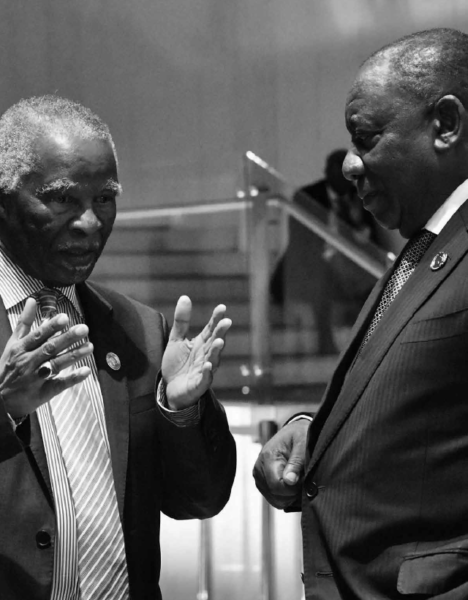
Self-serving politicians in modern Africa often overestimate themselves by erroneously believing that they have a monopoly on good ideas. Anyone who does not align with their provincial viewpoints is quickly labelled an enemy and subjected to aggressive treatment. This has invariably dampened the interest of the people, who now prefer to withdraw their support rather than face the perpetual indictment of their moral principles.
According to Mbeki, reclaiming Africa’s value system, where people-oriented development would be accomplished, is hinged on investing in human capital. It is suggested that investment in people is crucial for reclaiming the inherent potential passed down to them. If the masses are not excluded from governance, their voices can help to shape policies that directly impact their lives. It is common knowledge that people are always the primary targets of all policies, and considering Africa’s colonial experience, it is only natural to prioritize them in the general scheme of things. Otherwise, they risk being marginalized by previous unfriendly policies that have drained their economic potential while offering little to no assistance.
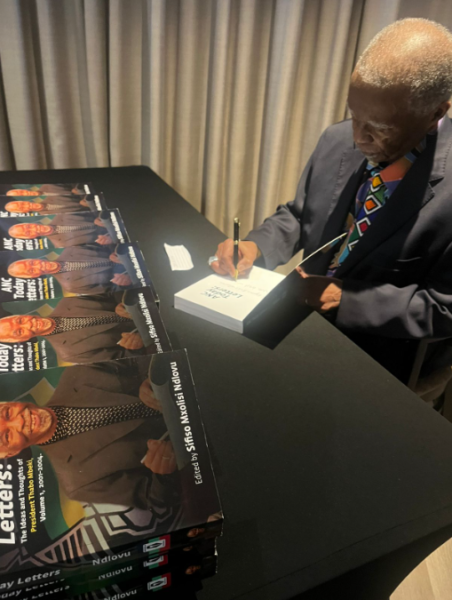
Freedom does not necessarily mean the absence of physical chains that restrict people’s movement and limit their mobility; true freedom occurs when individuals are prioritized in governance. This can only be achieved by integrating, informing, and educating the populace about societal developments, ensuring they understand their role and place within the broader context of their society. To trace the history of the ANC and its solid values, in contrast with today’s disappointments, you must read Mbeki’s letters and papers.
PS: This is a 12-part series based on the collections edited by Sifiso Mxolisi Ndlovu, titled ANC Today Letters: The Ideas and Thoughts of President Thabo Mbeki, Volume 1, 2001-2004, supplemented by materials in the Thabo Mbeki Museum, UNISA, Pretoria. The series is composed over five weeks in three different countries. The museum’s resources, digitized under 27 categories, can generate over 200 books.
